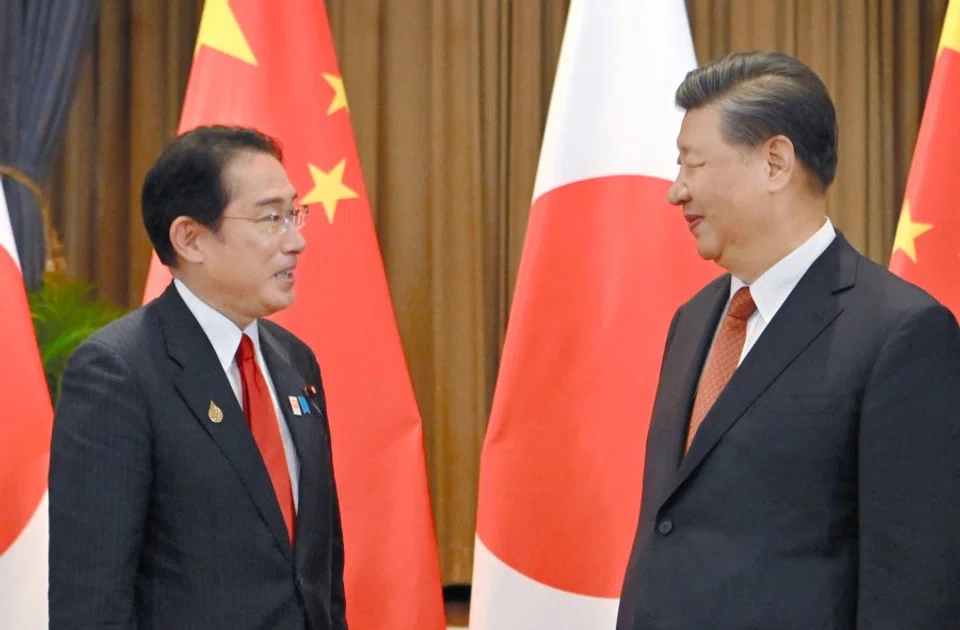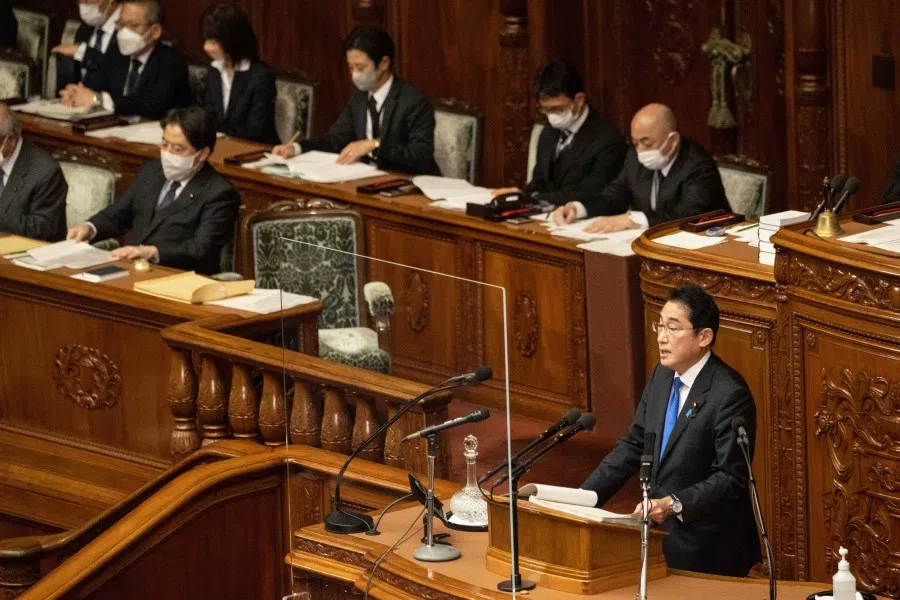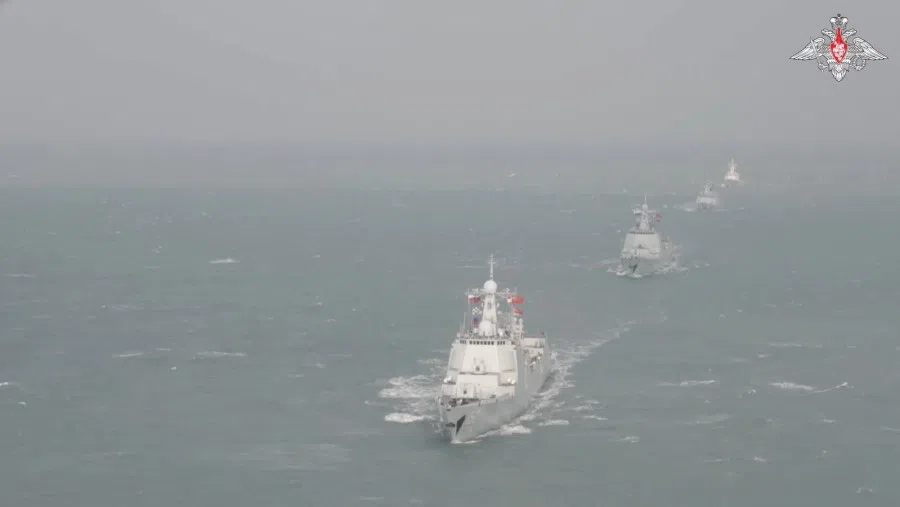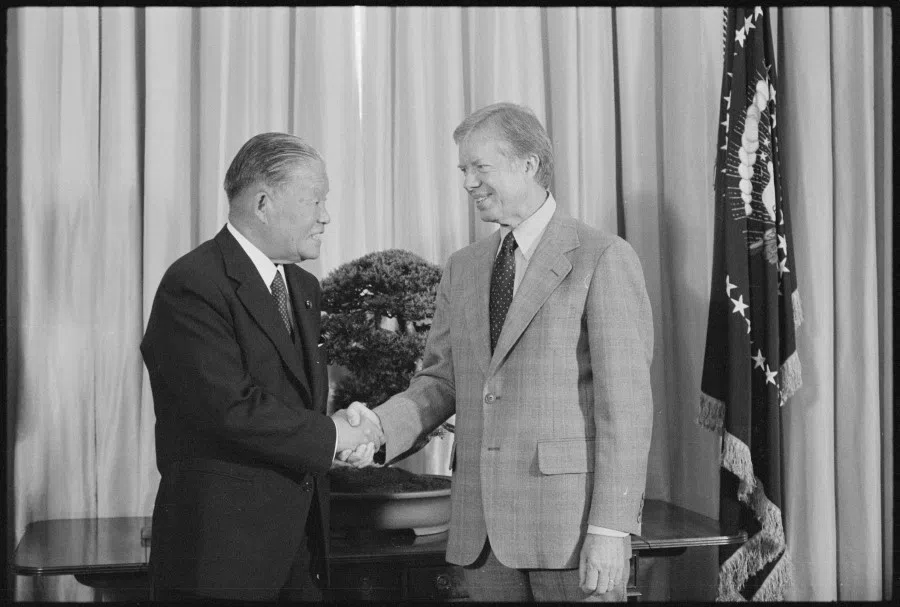Can Japan and China find common interests and live in peace?
Japanese academic Tomoki Kamo points out that one can no longer rely on economic relations to keep Japan-China relations on an even keel. Trapped in a security dilemma exacerbated by diverging views of the international order, what common interests can Japan and China still find to go the distance?

The international order is currently going through a period of major change. The values and benefits so far commonly recognised by the international community are in flux, as are the rules of the game, such as the norms and institutions shared by the international community.
In international politics, it is common knowledge that "the political foundation of international security is building and maintaining good 'communication of intentions' among states".
Firstly, it is not easy to reconcile interests among countries through negotiations. Secondly, there is no alternative to negotiations to reconcile interests among countries. Thirdly, failure in "communication of intentions" among negotiating parties can lead to irrational war.
As such, the communication of intentions among countries is important. As countries are going through a period of major change in the international order, they are faced with the question of how to best conduct the communication of intentions among one another.
A different idea of the international order
Current Japan-China relations are no exception. Experts from both Japan and China have emphasised the importance of communication of intentions and have stressed the value of close exchanges between Japan and China, especially direct communication between the leaders.
But the most urgent question is: what kind of Japan-China relationship should be built through good communication of intentions?
The differences in the international orders advocated by Japan and China are a destabilising factor in the region.

I believe that the goals of future Japan-China relations should be aligned with those established since the normalisation of diplomatic relations in 1972. Good and stable bilateral relations must contribute to the peace and prosperity of Asia and the world. However, it seems that it is far from a given that the next 50 years will be an extension of the past 50 years.
The leaders of Japan and China refer to current Japan-China relations as "constructive and stable Japan-China relations". In reality, however, it can be said that we are trapped in a "security dilemma".
There is a difference between the international order that Japan pursues, which is necessary for Japan's own peace and prosperity, and that which China pursues; and this is starting to show. The differences in the international orders advocated by Japan and China are a destabilising factor in the region.
Threat perceptions
For example, the two societies have different perceptions of security-related threats.
On 30 November 2022, the think tank Genron NPO and China International Publishing Group published the 18th Japan-China Joint Public Opinion Poll 2022, which showed that the two countries have different views on where the threats lie.
On the Japanese side, 79.8% of respondents answered that they could perceive "countries and regions that pose a threat", while on the Chinese side, 47.1% of respondents voiced the same sentiment. Of these, the Japanese respondents ranked China as the number one country or region that they feel threatened by. This is followed by North Korea in second place and Russia in third place.

In contrast, the Chinese ranked the US as the number one country or region that poses a threat, followed by Japan.
As for the "reason why the other country is perceived as a threat", the Japanese responded that this was due to the other country's "actions in the East China Sea". At the same time, the Chinese gave the reason as "Japan is militarily encircling China in cooperation with the United States", which is an answer that was picked more than "the history of Japan's war of aggression". These findings suggest that Japan and China perceive each other as threats.
Due to the remarkable growth of Chinese companies, the relationship can no longer be perceived as solely complementary, and the competitive aspect has been intensifying.
Economics glue no longer as strong
That said, Japan and China share economic interests. The two countries have maintained close economic ties and long-standing people-to-people exchanges while guiding the peace and prosperity of both countries, Asia and the international community.
These rich and complex relations have provided "resilience" to restore stability and maintain good relations whenever bilateral relations worsen. However, over the past 50 years, Japan-China economic relations have deteriorated.
Due to the remarkable growth of Chinese companies, the relationship can no longer be perceived as solely complementary, and the competitive aspect has been intensifying. There is a growing demand among Japanese companies for a more level playing field.
Moreover, the two governments need to make efforts to find an effective strategy to handle security tensions together. The Russian invasion of Ukraine has made it clear once again that globalisation and interdependence alone do not sustain peace and prosperity in the international community.
Of course, current Japan-China relations do not and must not operate according to such dynamics. Trapped in a security dilemma, Japan and China need to make efforts to find common interests to overcome their disparate views on international order.
... seeking common interests will be a challenge for both Japan and China in the next 50 years.

The basic idea of Japan-China relations over the past 50 years was expressed in then Prime Minister Masayoshi Ohira's speech "Japan-China Relations for the New Century" during his visit to Beijing on 7 December 1979.
Ohira declared in the speech that economic assistance would be provided to China. He said the reason for this was that "international cooperation lies at the heart of modernisation policy, so we expect the emergence of a richer China will lead to a better world". There was a "common interest" in welcoming China into the existing international order and developing together. This common interest has supported Japan-China relations over the past 50 years.
What kind of common interests exists in today's Japan-China relations, which are still trapped in a security dilemma? Relations can only be made stable with common interests, and the two countries' concerted efforts to find them.
Sometimes I wonder if Japan and China are part of the same international order. And if we are aiming for different international orders, can the two countries share common interests? Indeed, seeking common interests will be a challenge for both Japan and China in the next 50 years.





